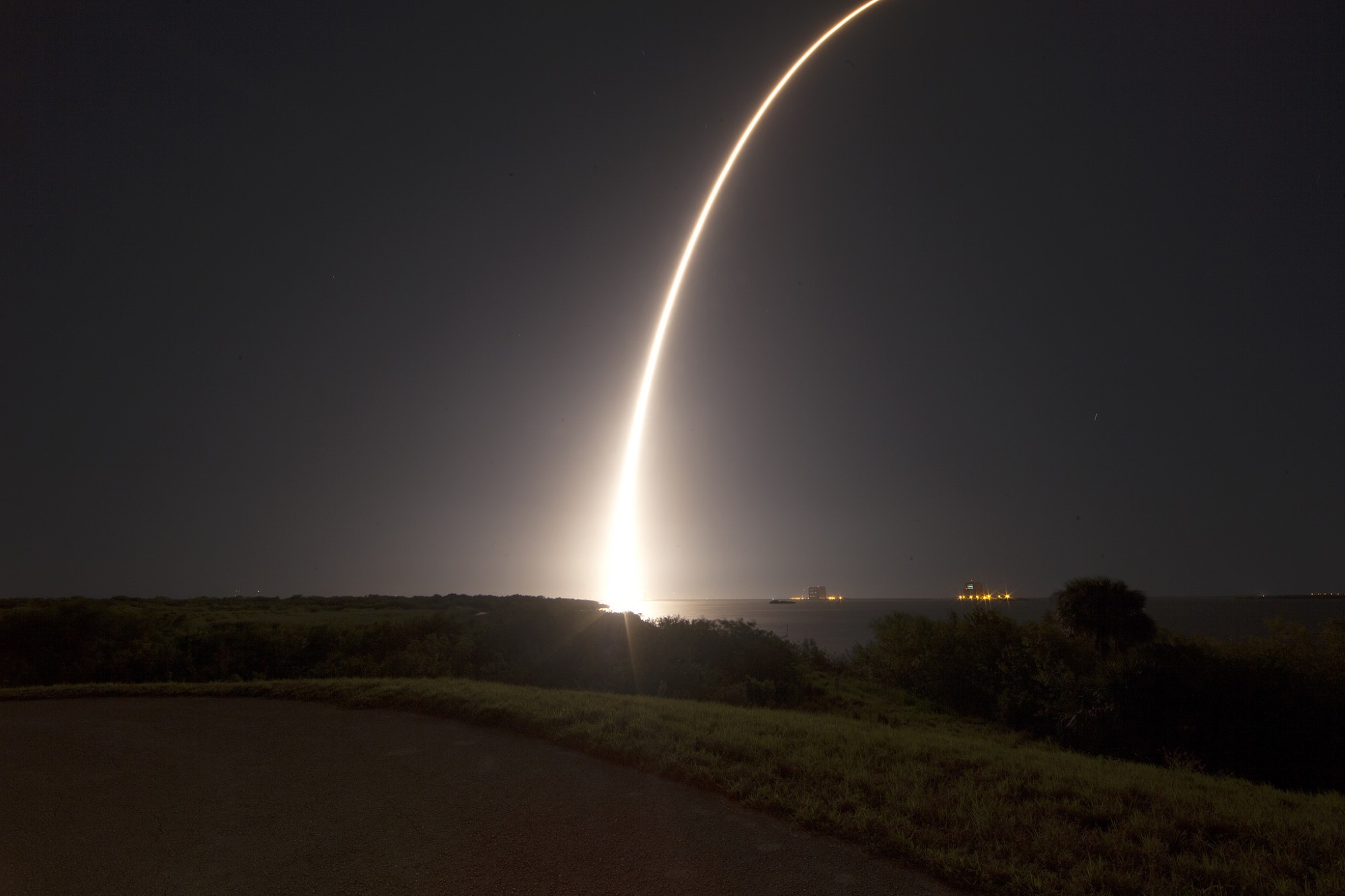At first it wasn’t clear if they were “little green men.” They sure weren’t green.
Everyone believed they were not human – everyone knew it – but media did not get hold of much scientific information. The point was, I think, that not much scientific information was circulating.
Since when they had landed in a Swiss valley in January, speculation grew to silly proportions. Authorities were unprepared, struggling to control the crowds forming outside the tiny military base. Americans were surprised the creatures hadn’t shown up in the US. They were baffled, really.
In retrospect, landing in a historically-neutral Country was a smart move, one that showed intelligence and knowledge.
At any rate, on the third day, experts arrived from many UN member states – linguists, psychologists, biologists, doctors. After a while and countless attempts at communicating with the creatures, things got boring and media reduced coverage.
Weeks passed with the odd headline appearing on newspapers every now and then.
“The creatures are still on a tight diet.”
“Aliens got interested in flowers!”
I was happy, I admit. I mean, I was scared of them. Many were. We weren’t spared panic and chaos scenes typical of movies. Truth be told, most trouble happened in the US.
Knowing that, after all, they meant no harm to us… that made me feel somewhat safe again.
I used to live at a hundred kilometers from where they had landed. Or rather, they appeared, out of nowhere. No spaceships, no vehicles, and, luckily, no death rays. One day they had just shown up to the party, walking with a funny pace on the street of a small alpine town. As soon as residents had called police, the two creatures had been escorted away by an armed squad.
It all began to look like a surreal reality show, streamed in real time on the web. Media reported no significant progress. Even visual communication with pictures and photographs did not seem to spark anything within those two creatures. Without ever attempting any form of communication, they looked like autistic children.
Perhaps they were.
We all expected them to be superior to us. Perhaps they were not. Perhaps they simply didn’t want to talk to us. Not yet.
The two aliens did not eat. They did not produce waste. They did not speak. But if you looked close enough, they were indeed communicating. They appeared interested in our environment. Sometimes they stared at the simplest of things, like a flower, for long moments without moving.
They were interested in us. They slowly built a close relationship – a mute one – with three or four of the brightest scientists that were working with them. The aliens even touched the humans. The first time, one of them fainted. The scientist I mean. I think she was a biologist. She got a concussion and a few days’ rest. The creature did not seem to register, at least from what you could see on TV. He (or she?) just stared at the scientist lying on the floor.
After six months, scientists still did not understand how the creatures fed or if they did at all. Noninvasive tests revealed only that their biology was completely different from ours and from those found on Earth.
Although they were learning about us much more than we were learning about them, some of the scientists, the ones closer to the aliens, were sure there was something in their eyes. Intelligence, for sure, but emotion as well.
Everyone, or almost everyone, was convinced that they did not mean harm to us or to our planet. I wondered what harm could two individuals do. I mean, we have nukes. Not we, as in Italians, but we as humans. These two aliens, these two beings, they were nude, unarmed, and did not express much physical force. Not more than what they needed to move around and explore their surroundings.
What harm could they do?
It was decided to let them free. Always escorted and surveilled, but still free. Until then, they had been de facto prisoners, but they had not complained. We finally gave them the freedom they deserved but never asked for.
Surprisingly, humanity coped pretty well this time. Only a few isolated incidents. No deaths. That was an achievement in itself, I guess.
They began exploring the area. They never ventured too far from the base and they returned regularly. Scientists noted that could mean they understood the meaning of home. When they moved in the streets, there always was a trail of curious people, soldiers, and scientists. And journalists too.
The creatures did not seem to care about the crowd, but every once in a while, they stopped and stared at the people. They never interacted with anyone. They didn’t communicate between them either, not in a visible way. They were very careful in how they behaved, how they approached the world, how they touched things. They seemed particularly good at avoiding to upset us, even involuntarily.
The most polite creatures Earth had ever seen.
***
It was my birthday. My seventeenth birthday. I remember it perfectly. The TV was on.
“They are gone!”
“ET just went home!”
I cried. I cried a lot.
I didn’t care how, why, where, or when. They were just gone, and I missed them. I had never met them, but still, I missed them. Can you miss someone you have never met?
The team of scientists, with nothing better to work on, began watching the thousands of hours of footage recorded during the year the aliens had stayed with us. After a few weeks, some were sent home. In a year or so, the team was finally disbanded. Budgets were reallocated. Space programs ramped up again with renewed energy and resources, and with the certainty we were not alone in this universe. We just did not know where to look or how far we’d have to go.
Over the next decade, everything slowly got to normality. Wars, a couple economic meltdowns, climate change debates, political skirmishes… good old Earth, I guess. Some even argued the whole aliens story was a giant hoax. A farce. Moon landing-style.
I started to suspect it as well. After all, very few had supposedly met the creatures in person. The rest of the world had watched it on TV. It was at least plausible; the only question was, why?
***
There was a bright full moon outside. I could clearly see it from the window of my living room. It was a cold March night.
Exactly twelve years, three months, and five days had passed since the day they had left Earth.
That day, they were back again.
Like the first time, no spaceships, no vehicles. They just appeared out of nowhere, exactly at the same time in every part of the world.
The problem was, this time they were a lot. Millions, according to the TV. And they were everywhere. They liked cities, mostly. I would say they liked humans. They liked us.
When they had left, I had cried. I had been desperate. Fast-forward twelve years, and I was scared. We all were.
They had invaded us. They were too many for us to tolerate.
People locked inside, peering through the windows.
All these aliens, they still looked harmless, but how could we be sure? They were so many!
The next morning, most creatures had gone away; there were just a few of them outside my house. The TV said there had been no attacks and no deaths. Another human achievement.
We as a species kept our bearing in front of millions of alien creatures. Perhaps we were just too scared to do anything, but I believe we were somewhat prepared, if only just a bit.
I ventured out.
***
Upon more accurate estimates, the global count was around a hundred thousand. We had a hundred thousand aliens walking on our planet. Our home.
That was fine. It felt good, to me at least. We made it through a few weeks, but not without trouble. There had been fights. A total of five hundred and thirty-three aliens had been killed, and several hundreds more injured.
The fights continued for a while and they did not fight back. They let us kill them without fighting back. Without even retreating, without even running away.
Who is harmful, who is dangerous here? That’s us.
We managed to harm more than a thousand creatures. A few dozens of us got injured in the process. We’re not even able to handle ourselves, are we?
And suddenly, without as much as an announcement, a ceremony, anything, they started talking. They talked to us. They talked to anyone who dared enough to talk to them, in any language spoken on Earth.
They knew pretty much anything and everything. They knew about the universe, about Earth, the Moon and the Solar System. They knew about black holes. They confirmed that the theory of general relativity is correct. Way to go, Albert!
They said they were from Alpha Centauri Bb. How funny. Thousands of potential Earth-like planets surveyed in the past two decades, and the one harboring life – intelligent life – is the closest to us.
Their species is eighty-nine million Earth-years old. It evolved over time obviously – evolution works everywhere, it seems – but they were intelligent, self-conscious beings when dinosaurs ruled Earth.
We were not ready. We were being overwhelmed with knowledge, much of it beyond our comprehension.
One thing they refused to tell, however, was how they got here. How do you move a hundred thousand living creatures so far and so fast without as much as a bicycle? It was probably too much for us to handle.
I went out one morning and asked one of them why were they here, why they were helping us.
The creature answered matter-of-factly that they weren’t helping us. Instead, they were helping themselves.
I did not understand the meaning right then. It took me a few hours to process, and then it hit me like a punch in the guts.
They were forcing scientific progress on us to save themselves. They were steering us clear of what they saw as a barbarian age, an age that in a few hundred years would probably see us evolved enough to harm them and their home planet.
***
They did not go away this time. They say they are staying.
They’re helping us. They’re tutoring us, actually. They never give us tools, or technology, or machines. They teach us how to build them. It’s a lesson of humility on our side, but a very tiny price to pay.
They helped us achieve unimaginable scientific advances. In a few years, we got cold nuclear fusion. We got space engines that could push us at ninety percent of the speed of light without killing us.
Now we can send men and women outside the solar system and get them back, safe, in a few weeks.
Tomorrow we’re launching a mission to their home planet. They invited us. They got to pick who is going; we got to build the spacecraft. The problem is cramming enough food into the spaceship for the forty of us that are going. It seems even they can’t help us with our insatiable need of water and food. We just function that way. That’s why our people will have to come back in fifteen years, as there’s nothing we can eat on their planet.
It’s an adventure for some. Scientific research for others, like my brother. For me, it would be a fantastic dream. Instead, it will be like losing a part of me never to find it again.
I’d kill to go.
Featured image credit: NASA Kennedy Space Center.
This short story also appeared on Medium.


Comments
One response to “#shortstory: Us & Them”
Very good